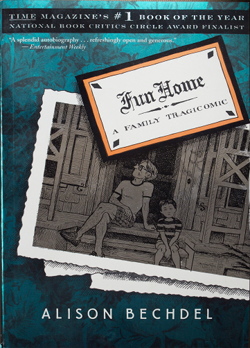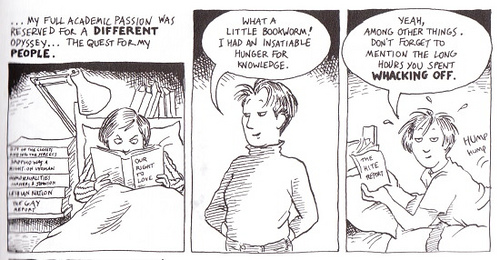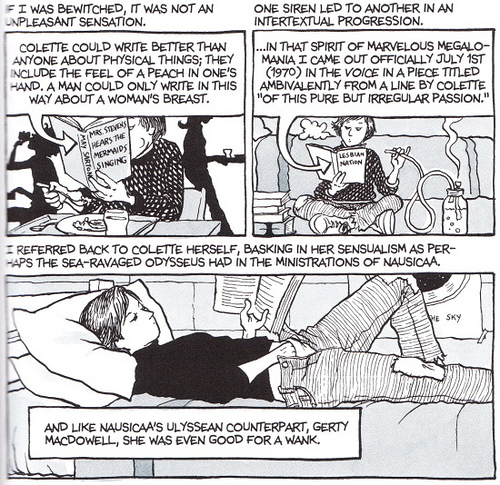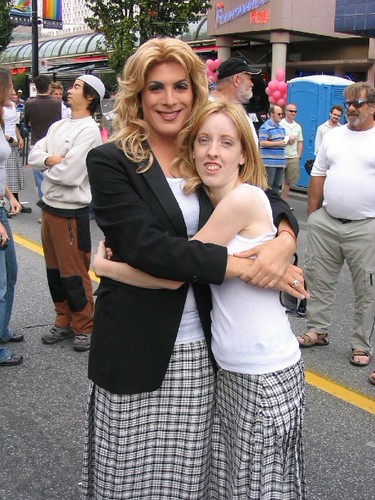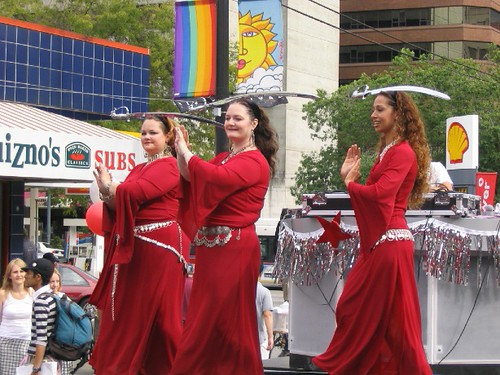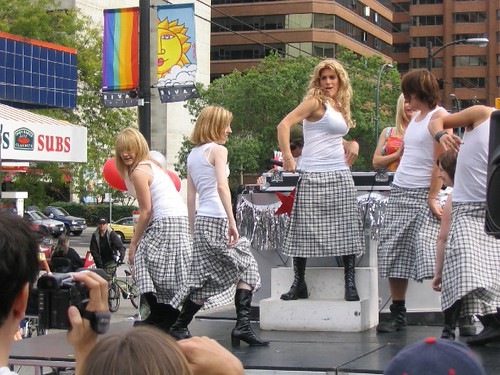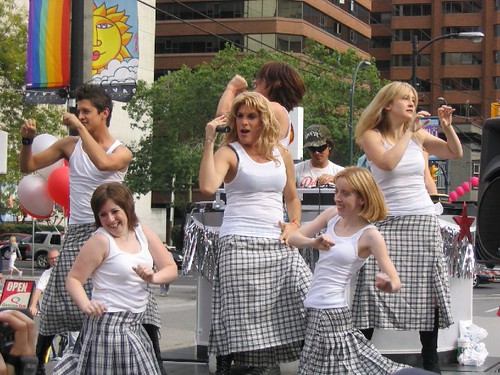Hey, didn’t I resolve in January to read fiction and then to blog about it? Why yes I did.
Armistead Maupin’s Tales of the City
I’d started Armistead Maupin’s Tales of the City in April, shortly after finishing The Five Books of Moses Lapinsky, and eventually finished it on my vacation in June. And just like Five Books, as with the previous book, I had a hard time getting into it. The problem, I think, was that there wasn’t any plot, just a bunch of characters living their lives and interacting.
But it grew on me. The lack of an overall plot stopped bothering me, and I just let Maupin lead me by the hand into the lives of these oddballs—not as sideshow freaks, but as interesting people who made San Francisco the city he loved. And hey, I can definitely relate to Mary Ann, the innocent newcomer.
Mary Ann Singleton was twenty-five years old when she saw San Francisco for the first time.
She came to the city alone for an eight-day vacation. On the fifth night she drank three Irish coffees at the Buena Vista, realized that her Mood Ring was blue, and decided to phone her mother in Cleveland.
Hee. “Mood Ring.”
And another sign of the times: all the scenes of cruising (both hetero and otherwise) at Safeways and laundromats. I mean, granted, they didn’t have the internet back then, but did people really do that? Oh my god, maybe they still do that! Have I been blind to all the hooking up going on at the Safeway on Davie? Damn, I’ll have to pay more attention in the future.
William Hope Hodgson’s The Night Land
I totally forgot about this book, until I dug it up again in Ottawa, and decided to bring it back with me.
A bit of history: way back when, I borrowed from a friend a complete compilation of HP Lovecraft’s stories, in three large volumes. The second (IIRC) contained a review by Lovecraft of about a dozen horror/fantasy novels of the era. One of them, The Night Land, sounded intriguing—a story of the far future, where the last remnants of humankind are huddled in a massive fortress and the rest of the Earth is filled with horrible monsters. Lovecraft appreciated the weird and creepy settings, but objected to the silly pseudo-Olde-Fashioned Writing style, and the schmaltzy love story that drove the plot.
Don’t ask me how I got my hands on an obscure horror novel published in 1912, but I did. And say what you will about Lovecraft (like, that he was a creepy misogynistic bigot), but when it came to fiction the guy knew his shit. Everything he said in his review was absolutely on the nose. In fact, rereading The Night Land the second time around was even more painful than I remembered:
And I stood me up, and did peer about for any dread matter; but all seemed proper, and I began to stamp my feet against the earth, as that I would drive it from me, and this I do say as a whimsy, and I swung mine arms, as often you shall do in the cold days; and so I was presently something warmed. And I dismantled my cloak, and wrapped it around me, and did feel that the Diskos [his weapon, like a circular vibro-blade] was safe to my hip.
Then did I sit me down, and did glow a little with relish, in that I should now eat four of the tablets; for, indeed, these were my proper due, by reason of my shiftless fasting ere I came so wotless to my slumbering.
Now imagine 500+ pages of that. And I’ve spared you the really nauseating parts after he rescues his lady-love and takes her back to the Pyramid. They alternate between being all lovey-dovey, and her being an arbitrarily silly bitch so the big strong protector male has to hit her a few times so she’ll behave. Yeah, I’d forgotten how stunningly sexist the book was, and “Well, it was written in 1912” isn’t much of an excuse. Hodgson deliberately went for old-fashioned, not just in the language but the story dynamics, creating something I’d describe as “medieval”. As much as I hate doing it on principle, I had to skim a lot of passages until I got to the next plot point or action scene.
Some bits were interesting, though. The description of the Evil Forces was indeed pretty cool, as was the narrator’s musing that most of this future Earth wasn’t so much evil as just alien; dangerous to humans, sure, but not actively hostile to them, and still not without beauty.
At one point the protagonist was wondering if Naani (the love interest) had had other lovers between the present day and this future (because they’ve both been reincarnated many times) and actually got jealous over the possibility. That was just so silly to me that I felt sure the whole novel was a subtle deconstruction of the reincarnation romance trope. However, everything else seemed to be played completely straight, so I don’t know.
Bottom line: meh. It was kind of interesting as a specimen of old-time literature, but it fails as a love story, and only somewhat succeeds as horror and adventure. Only hardcore fans would enjoy this.
